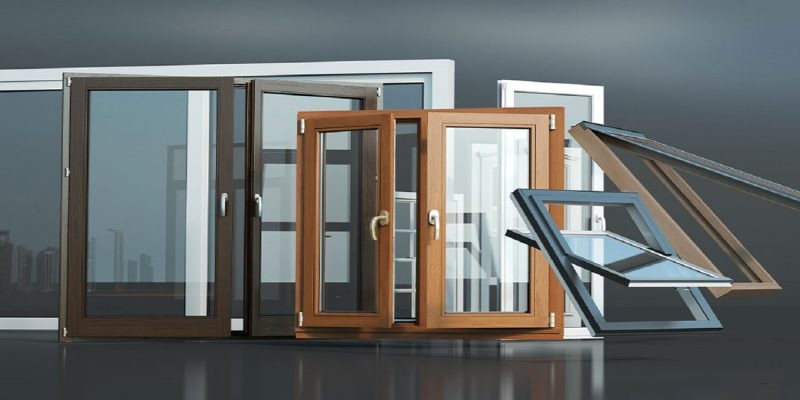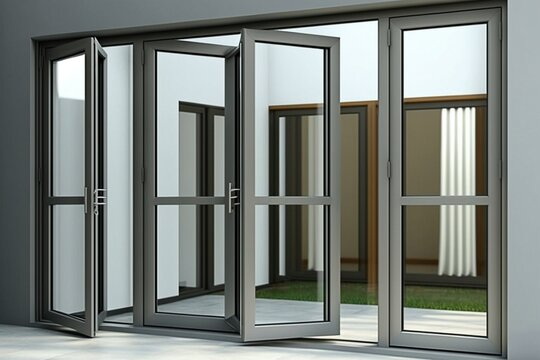English


Views: 222 Author: Tomorrow Publish Time: 2025-07-11 Origin: Site











Content Menu
● Understanding the Importance of Choosing the Right Manufacturer
● Key Factors to Consider When Choosing Aluminum Windows Manufacturers
>> 2. Variety of Product Options
>> 3. Performance and Energy Efficiency
>> 5. Reputation and Reliability
>> 6. Manufacturing Capabilities and Technology
>> 7. Environmental Considerations
● The Manufacturing Process: What Sets the Best Aluminum Windows Manufacturers Apart?
>> Glass Selection and Installation
>> Assembly and Quality Control
● Why Manufacturing Quality Matters
● Steps to Select the Best Aluminum Windows Manufacturer
● FAQ
>> 1. What makes aluminum windows superior to other materials?
>> 2. How important is the thermal insulation of aluminum windows?
>> 3. Can aluminum windows be customized?
>> 4. What should I look for in a warranty from an aluminum windows manufacturer?
>> 5. How can I verify the reliability of an aluminum windows manufacturer?
Selecting the right aluminum windows manufacturer is a crucial decision that affects the durability, performance, and aesthetic appeal of your building. Aluminum windows are prized for their strength, lightweight nature, corrosion resistance, and modern look, but not all manufacturers offer the same quality or service. This comprehensive guide will help you understand the key factors to consider when choosing the best aluminum windows manufacturer for your project.

The manufacturer you select will determine the quality of materials, the precision of manufacturing, and the level of customer service you receive. A reputable manufacturer ensures that your aluminum windows withstand harsh weather conditions, provide excellent insulation, and maintain their appearance over time. Conversely, a poor choice can lead to issues such as premature corrosion, poor fit, and increased maintenance costs.
The foundation of a good aluminum window is the quality of the aluminum alloy used. High-grade aluminum alloys are resistant to corrosion and can endure extreme weather without deteriorating. Ensure the manufacturer uses premium aluminum profiles that meet industry standards for strength and durability. Additionally, check if the glass used is tempered or double-glazed for safety and thermal efficiency.
A top aluminum windows manufacturer should offer a broad range of window styles, sizes, colors, and finishes. This variety allows you to customize windows to suit your architectural style and functional needs. Whether you need casement, sliding, or fixed windows, the manufacturer should provide options with various hardware and glazing choices.
Thermal insulation is a critical performance metric for aluminum windows. Look for manufacturers who provide windows with low thermal transmittance (Uw values), which means better energy efficiency and lower heating or cooling costs. Features like thermal breaks in aluminum profiles can significantly improve insulation.
While price is important, it should not be the sole deciding factor. Extremely low prices may indicate inferior materials or workmanship. The best aluminum windows manufacturers balance competitive pricing with high-quality products and reliable service. Always consider the long-term value rather than just upfront cost.
Research the manufacturer's reputation by reviewing customer feedback, industry certifications, and case studies of previous projects. A well-established manufacturer with positive reviews is more likely to deliver consistent quality and honor warranties. Also, verify their after-sales support and warranty terms to protect your investment.
Modern manufacturing processes and technology contribute to the precision and quality of aluminum windows. Leading manufacturers invest in advanced machinery and quality control systems to ensure consistent product standards. This also affects the availability of custom designs and faster delivery times.
Sustainability is increasingly important. Some manufacturers adopt eco-friendly practices such as using recycled aluminum and minimizing waste. Choosing a manufacturer committed to environmental responsibility can contribute to your building's green credentials.

Understanding the production process can help you appreciate the quality differences among aluminum windows manufacturers. The manufacturing of aluminum windows is a complex, multi-stage process that requires precision and advanced technology.
The process begins with a detailed design phase where the manufacturer collaborates with architects and clients to determine specifications such as window dimensions, style, color, and performance requirements. Sophisticated software like CAD is used to create precise technical drawings that guide production.
Aluminum profiles are created through extrusion, a process where heated aluminum billets (usually between 375°C and 500°C) are forced through a shaped die to form the window frame components. This method produces uniform, strong profiles with complex cross-sections tailored to specific window designs.
Once extruded and cooled, the aluminum profiles are cut to exact lengths. Precision cutting machines ensure accurate dimensions and angles, often at 45 degrees for corner joints. Milling machines then create slots, holes, and grooves for hardware installation, such as hinges, locks, and handles. This step is critical for ensuring smooth assembly and proper window function.
Raw aluminum is prone to corrosion, so manufacturers apply surface treatments to enhance durability and aesthetics. Common treatments include anodizing, which creates a protective oxide layer, and powder coating, which applies a colored finish through an electrostatic process. These treatments also allow for a wide range of colors and finishes to suit architectural styles.
To improve energy efficiency, many manufacturers incorporate thermal breaks—non-metallic barriers inside the aluminum frame that reduce heat transfer. This feature is essential for maintaining indoor comfort and reducing energy costs in both hot and cold climates.
The glass used in aluminum windows significantly impacts performance. Manufacturers typically use double or triple glazing with low-emissivity coatings and gas fills like argon to enhance insulation. The glass is cut precisely and installed with advanced sealing techniques to prevent air and water infiltration.
The final stage involves assembling the cut profiles, glass, seals, and hardware into complete window units. Corners are joined using mechanical fasteners or welding, often reinforced with adhesives and corner inserts for strength and airtightness. Each window undergoes rigorous inspection to ensure it meets quality standards before packaging and shipment.
The manufacturing process directly influences the window's lifespan, performance, and appearance. High-quality extrusion, precise machining, and thorough surface treatment prevent common problems like warping, corrosion, and poor sealing. Thermal breaks and quality glazing improve energy efficiency, reducing utility bills and environmental impact. A manufacturer's investment in advanced technology and skilled craftsmanship is reflected in the final product's reliability and customer satisfaction.
1. Define Your Requirements: Identify your needs in terms of window type, size, design, and performance.
2. Research Potential Manufacturers: Compile a list of aluminum windows manufacturers with good market presence.
3. Evaluate Products and Services: Compare product quality, customization options, pricing, and warranties.
4. Request Samples or Visit Showrooms: Examine the physical quality and finish of the windows.
5. Check References and Reviews: Speak with past clients or read testimonials.
6. Assess Customer Support: Ensure the manufacturer provides reliable communication and after-sales service.
7. Make an Informed Decision: Choose the manufacturer that best aligns with your quality expectations, budget, and project timeline.
Choosing the best aluminum windows manufacturer requires careful consideration of material quality, product variety, performance, price, and reputation. By thoroughly evaluating these factors and understanding the manufacturing process, you can secure aluminum windows that enhance your building's appearance, comfort, and energy efficiency for years to come. Investing in a reputable manufacturer is an investment in long-term satisfaction, durability, and sustainability.

Aluminum windows are lightweight, strong, corrosion-resistant, and require less maintenance than wood or PVC. They offer sleek, modern designs and excellent durability.
Thermal insulation is vital for energy efficiency. Aluminum windows with thermal breaks and low Uw values reduce heat transfer, lowering heating and cooling costs.
Yes, most aluminum windows manufacturers offer extensive customization options including sizes, colors, finishes, and hardware to match architectural styles and personal preferences.
A good warranty covers defects in materials and workmanship for several years. It should also include after-sales service and support to address any issues promptly.
Check customer reviews, certifications, project portfolios, and ask for references. Visiting the manufacturer's facility or showroom can also provide insight into their capabilities and quality standards.
Stainless Steel Pipes Vs Galvanized Pipes: Durability And Cost Analysis
Comparing Stainless Steel Pipes And PVC Pipes: What You Need To Know?
Stainless Steel Pipes Vs Copper Pipes: Pros And Cons for Industrial Use
Seamless Stainless Steel Pipes Vs Welded Pipes: Key Differences Explained
Stainless Steel Pipes Vs Carbon Steel Pipes: Which One Suits Your Project?
Stainless Steel Sheets Vs Galvanized Steel Sheets: Pros And Cons Compared
Stainless Steel Sheets Vs Aluminum Sheets: Which One Suits Your Project?
Cold Rolled Vs Hot Rolled Stainless Steel Sheets: Key Differences Explained
How To Choose Stainless Steel for Industrial Guardrails And Railings?
